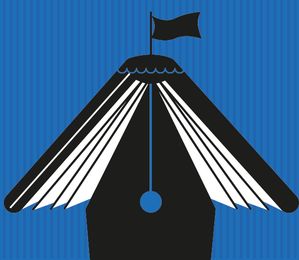When television became ubiquitous in urban India, many parents worried that their children would stop reading books. The participation of large numbers of young people at the ever-growing number of literary festivals and book launches, and the continued growth of readership for fiction and nonfiction are, therefore, reassuring and elevating phenomena. The printed word wrapped in a hard-bound book still has buyers.
With books, however, come book launches. Few authors these days can avoid the ritual of a book launch. Delhi has become the book launch capital, but authors of popular books are now expected to travel around the country promoting their work. Book promotion has become a travelling circus requiring showmanship, glamour and some supporting controversy.
There are at least three types of book launches defined by the book, its author and its audience. First, there is the academic book launch, a scholarly event; second, there is the more entertaining event of the launch of a popular book; third, there are the self-promoting public events that are more about the author than the book.
Typically, an academic book launch is one in which the author speaks at some length about the book and two or three speakers, knowledgeable in the subject area, then comment on it. The audience is small, but well-informed, and seeks to get a glimpse into the author’s mind and learn from informed critical opinion on the book.
The popular book launch is normally associated with books that are likely to have a wide, non-academic readership. The panellists commenting on the book are there not because they are necessarily knowledgeable about the subject but because they are high profile individuals who make the book launch a media event. It has now become a common practice in Delhi that such events have a television personality as a moderator and the entire discussion on the book seeks to mimic a television chat show.
The third sort of book launch is essentially aimed at giving the author an opportunity for some self-promotion. Speakers at such a launch are meant to praise the writer more than the book. Into this world of words, politicians, especially those not in power, have made their entry by finding an easy way of publishing books. That easy route is defined by two formulas.
Formula One, perfected by former Union minister P. Chidambaram, is the one in which the author puts together newspaper columns into a book every once in a while. This offers periodic opportunity for a book launch. Politicians use such events to showcase the political support they still enjoy by inviting speakers from different political backgrounds to be on the panel.
Formula Two is the easier route. Get a ghostwriter to pen one’s thoughts and a VIP to launch the book. Vice President Venkaiah Naidu offers a good recent example of this variant. He has also opened a new window of publishing opportunity for politicians in public life. Naidu has come out with a book that puts together his activities and achievements during his first year in office. If the annual collection of weekly columns ensures one kind of regular output for a politician, the annual publication of a year’s work in office offers another way of ensuring a book launch every year. Should one expect from Naidu an annual publication telling us what he has been up to as vice president? It then remains to be seen whether the prime minister and his predecessors would be willing to turn up every year to launch such an annual compendium.
Baru is an economist and a writer. He was adviser to former prime minister Manmohan Singh.


